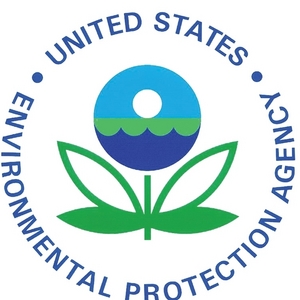WRE to pay $3M settlement for generating 7.2M invalid RINs

March 23, 2015
BY U.S. EPA
The U.S. EPA and the U.S. Department of Justice announced a settlement with Utah-based Washakie Renewable Energy LLC that resolves allegations that the company generated more than 7.2 million invalid renewable fuel credits worth more than $2 million.
From January to October of 2010, Washakie generated more than 7.2 million renewable identification numbers (RINs), and reported to EPA that it produced biodiesel associated with those RINs at its Plymouth, Utah, facility. During that time, however, Washakie did not produce any biodiesel at the Plymouth facility. The biodiesel associated with the 7.2 million RINs would have accounted for a reduction of emissions equivalent to more than 30,000 metric tons of carbon dioxide. Washakie has purchased and retired from the market an equivalent number of RINs, which achieved this reduction of emissions.
Renewable fuel producers and importers generate RINs for each gallon of renewable fuel in the U.S. market that meets greenhouse gas emissions reduction standards established under the renewable fuel standard (RFS). Washakie will pay a $3 million penalty under the settlement, which was lodged today in the U.S. District Court for the District of Columbia.
Advertisement
Advertisement
“This case is another example of EPA’s commitment to maintain the integrity of the renewable fuel standard program,” said Cynthia Giles, EPA assistant administrator for enforcement and compliance assurance. “Making sure producers are supporting their claims with production of actual renewable fuels is critical to reducing greenhouse gas emissions that are fueling climate change.”
“The defendant made quite a profit by failing to adhere to the requirements of the renewable fuel program regulations,” said Assistant Attorney General Cruden. “The penalty here sends the message that renewable fuel producers will be held accountable for meeting all legal requirements. The Department of Justice remains committed to taking the profit out of illegal activity.”
This is the first case under RFS2 in which, as a part of a settlement, EPA secured the replacement of invalid RINs by the producer of those RINs. Because Washakie purchased and retired an equal amount of RINs to the number identified as invalid and used for compliance purposes, EPA does not plan to request that the obligated parties who used the invalid RINs replace them. This reduces the burden on the parties that purchased and used the RINs for compliance purposes.
EPA initially discovered these violations during an EPA inspection of the Washakie facility in Plymouth, Utah, in 2010, and uncovered additional information concerning the violations in Washakie’s response to information requests and additional investigative work by the agency.
Advertisement
Advertisement
EPA is responsible for developing and implementing regulations to ensure that transportation fuel sold in the U.S. contains a minimum volume of renewable fuel. The RFS program, created under the Energy Policy Act of 2005, was developed in collaboration with refiners, renewable fuel producers and many other stakeholders. It was expanded and strengthened under the Energy Independence and Security Act of 2007, which was designed to encourage the blending of renewable fuels into our nation's motor vehicle fuel supply, and reduce the nation's dependence on foreign oil, help grow the nation's renewable energy industry, and achieve greenhouse gas reductions.
To read the settlement, or for more information about the case, click here.
Related Stories
President Trump on July 4 signed the “One Big Beautiful Bill Act.” The legislation extends and updates the 45Z credit and revives a tax credit benefiting small biodiesel producers but repeals several other bioenergy-related tax incentives.
CARB on June 27 announced amendments to the state’s LCFS regulations will take effect beginning on July 1. The amended regulations were approved by the agency in November 2024, but implementation was delayed due to regulatory clarity issues.
SAF Magazine and the Commercial Aviation Alternative Fuels Initiative announced the preliminary agenda for the North American SAF Conference and Expo, being held Sept. 22-24 at the Minneapolis Convention Center in Minneapolis, Minnesota.
International Sustainability & Carbon Certification has announced that Environment and Climate Change Canada has approved ISCC as a certification scheme in line with its sustainability criteria under its Clean Fuel Regulations.
Legislation introduced in the California Senate on June 23 aims to cap the price of Low Carbon Fuel Standard credits as part of a larger effort to overhaul the state’s fuel regulations and mitigate rising gas prices.
Upcoming Events









